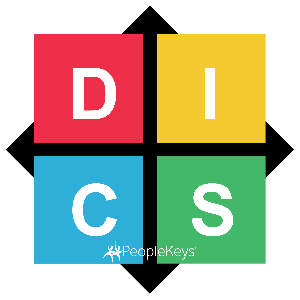- SHOP BY PRODUCT
- DISC TRAINING & CERTIFICATION TOOLS
- DISC RESOURCES
- BLOG
- SHOP BY PRODUCT
- DISC TRAINING & CERTIFICATION TOOLS
- DISC RESOURCES
- BLOG
- ALL ITEMS


.png)
Every business strives toward cultivating strong leadership. Yet the definition of a “strong” leader is often frustratingly subjective. If you’re hiring someone for a leadership position, should you look for someone who is driven and results-oriented or for someone who is empathetic and communicative? What about your own personality? Do you feel like you are a good leader, or do you find yourself sometimes questioning the effectiveness of your approach?
In order to get some clarity on the issue, James Zenger conducted a survey of 60,000 employees. He asked the employees to measure the degree to which they felt specific personality traits contributed to the effectiveness of a leader. Two of the primary personality types he looked at were results-focused individuals (analytical and forward-thinking) and individuals with highly developed social skills (people-focused). The results might surprise you. Here’s what he found:
With these approval numbers astonishingly low, it’s clear that employees in the survey didn’t respond well to a management approach that fell primarily into one category or the other. What they told Zenger instead was that they believed an approach that prioritized both people and results was the most effective. In fact, a whopping 72% of employees believed that this balanced results/people approach was the primary hallmark of an effective leader.
In the end, the survey suggests that the issue is much more complex than just choosing one style over the other—It’s not an “either-or” issue. Doing and directing are both of equal importance, and the survey suggests that a leader needs to have a good grasp on how to do both.
When we translate these survey results into the language of DISC, it shows that having both people-oriented and results-oriented personality styles above the midline on your DISC chart is a good indicator that you would be able to strike the right balance required to be a great leader. This means that, instinctively, SC, DI, DS, and CI personality types would be the best natural fit for leadership positions.
But what can you do if your personality doesn’t naturally focus on both results and people? If you are a high D, a high I, a high S, or a high C, are you destined to struggle in leadership positions?
Definitely not! No matter what your personality type, you can work to become a great leader. It’s a matter of knowing where you are strong and working to compensate for your weaknesses. For example, if you know that you are a high D with no trace of S or I above the midline on your DISC chart, it simply means that you need to recognize the fact that you might not naturally be people-oriented and that you will have to consciously adopt strategies to compensate. This might involve making a mindful decision to ask others for input before making decisions or in asking someone with strong people skills to work closely with you on a management team.
Overall, what the study suggests is that it is essential to have a vision, but you also need the people skills to be able to execute that vision. It’s a balance between being sociable yet authoritative, driven yet reasonable, motivating yet inspiring. As President Dwight D. Eisenhower once said, "Leadership is the art of getting someone else to do something you want done because he wants to do it."
It's never easy to balance things. It can be stressful, too, if what it takes to achieve balance goes against the way you naturally prefer things to be done. If you fear you might be lacking on one side of the equation, don’t worry. If certain leadership traits don’t come naturally to you, they can be learned. Like riding a bicycle or typing, it might be a struggle to learn at first, but the more you practice, the better you’ll get. Brushing up on DISC can also be a good way to gain clarity on the merits of different ways of approaching leadership and can give you more insight into new approaches to communication and motivation. Tools like our Teams and Values assessment are also a great way to learn how complimentary personality styles can be used to build strong and balanced management teams.
What do you think? Are you more results-oriented or people-oriented? Let us know in the comments if you believe in the idea of balanced leadership or if you have a different view on what it takes to lead.

© PeopleKeys. All Rights Reserved
WORKING DAYS/HOURS
Mon - Fri / 8:30AM - 5:00PM EST
